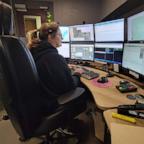Bannon wanted to testify but was advised not to, attorney says
Bannon defense attorney David Schoen read a statement to Judge Carl Nichols explaining why Bannon is not testifying in his own defense, before the judge brought the jury back in to announce the court was in recess until Friday.
Schoen said that Bannon understands he has a right to testify "and has very much wanted to do so" since his indictment -- specifically wanting to testify publicly about what "the true facts of the case are," Schoen said.
"However, on the advice of counsel and support of the team, he has decided not to testify because he understands he would be barred from telling the true facts of what he did and did not do with regard to the subpoena he was issued," Schoen said. "He believed he was doing what the law required him to do based on his lawyer's advice."
Schoen told the judge that Bannon's attorney at the time, Robert Costello, had told Bannon that "executive privilege had been invoked and he was not permitted by law to comply with the subpoena. Mr. Bannon followed and relied on the advice of his experienced counsel," and on previous memos written by the Justice Department, Schoen said.
After Schoen made those remarks, the judge turned to Bannon and asked: "Mr. Bannon, have you conferred with counsel, and do you knowingly and intentionally waive your right to testify?"
"Uh, yes your honor," Bannon responded. It was the first time Bannon has spoken during the trial.
Before Nichols sent the jury home, he reminded them, "Do not read about this case, do not read or watch TV or videos about this matter or related matters, through the end of deliberations."
He issued the reminder after prosecutor Amanda Vaugh raised concerns about the jury's potential exposure to the live televised hearing that the Jan. 6 committee is holding in prime time tonight.





